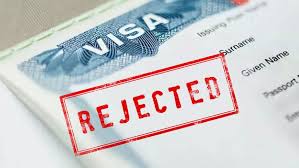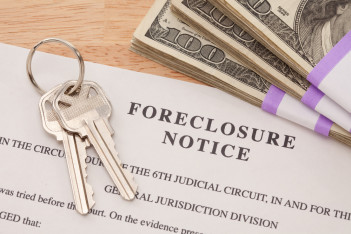Understanding Visa Denials: What to Do Next
If your visa was denied, don’t panic—most rejections are procedural, not final. Visa denial can be a stressful and disappointing experience, but it is important to approach the situation calmly and methodically. Understanding the reasons behind your visa refusal and taking the necessary steps to address them can significantly increase your chances of success when you reapply.
Visa applications are complex processes that depend on a variety of factors ranging from the completeness of your documentation, your ties to your home country, financial stability, and compliance with immigration laws. A denial often signals that something was missing, incomplete, or unclear in your application rather than a permanent refusal.
Common Reasons for Visa Denials
There are many reasons why a visa application can be denied, but some issues are much more common than others. Being aware of these common pitfalls can help you prepare a stronger application next time.
- Overstaying on a previous visa: If you have previously overstayed a visa in the destination country or in any other country, this can raise a red flag during your application process.
- Missing or insufficient evidence: Failure to provide all required documentation such as financial statements, letters of invitation, or proof of accommodation can result in denial.
- Weak ties to your home country: Demonstrating strong social, economic, or familial ties to your home country is critical. Without such ties, immigration officers may worry you intend to overstay your visa or immigrate illegally.
- Inconsistencies or errors in your application: Incorrect or conflicting information can undermine your credibility.
- Failure to convince the consular officer of your purpose: Your stated purpose of travel needs to be clear and justified.
- Previous criminal record or security concerns: Any criminal convictions or concerns around security and immigration violations can lead to refusal.
- Incomplete application forms;
- Lack of evidence of financial means;
- Unclear travel itinerary;
- Lack of proof of accommodation;
- Poor interview performance.
How to Respond After a Visa Denial
Receiving a visa denial letter can be disheartening, but it is essential to learn from this experience. The denial letter usually contains the reason or reasons for refusal, which you need to review carefully.
Here are the steps you should follow after a visa denial:
- Carefully read the denial notice to understand the specific reasons for refusal.
- Gather all the missing documents or correct inaccurate information pointed out as problematic.
- Strengthen your evidence of ties to your home country, such as employment confirmation, property ownership, family references, or educational commitments.
- Consider consulting an immigration attorney or visa specialist for advice on your case.
- Practice and prepare for your visa interview to ensure honest and clear communication of your travel intentions.
- Submit a new application addressing all the points raised in the refusal.
Tips for a Stronger Visa Application
Applying for a visa can seem daunting, but following these tips can improve your chances of approval:
- Be truthful and consistent in all your responses.
- Provide complete and well-organized documentation.
- Demonstrate clear and strong ties to your home country.
- Explain the purpose of your trip clearly in your application and interviews.
- Avoid overstaying in previous travels.
- Respond promptly and carefully to any requests or requirements by the embassy or consulate.
Remember, honesty and transparency are your best assets. Immigration officers appreciate applicants who present clear, convincing, and truthful information.
Knowing When to Seek Professional Help
Some visa cases are straightforward, but others can be complicated due to previous denials, complex immigration histories, or special visa categories. In such cases, professional assistance can make a significant difference. Consulting with a qualified immigration lawyer or visa consultant can help you understand your situation better, prepare thorough applications, and reduce the chances of rejection.
Experts can help you identify any procedural errors in your previous application, advise on required documents, and prepare you for interviews. Make sure to contact authorized professionals, preferably through official channels such as the bio communication or by sending a private message to ensure privacy and confidentiality.
Moving Forward with Confidence
A visa denial is often just a temporary setback, not a permanent barrier. Many applicants who have been rejected initially later succeed by carefully addressing the reasons for refusal and submitting an improved application. Learning from your first attempt helps you come back stronger.
Maintaining a clear, honest record throughout your travel history is crucial. Whenever you apply, be prepared to explain your past visa denials honestly and how you have addressed those issues. This demonstrates responsibility and credibility to the consular officers.
If your visa was denied, do not lose hope. Most visa refusals are procedural and can be overcome by understanding the reasons for denial, remedying the issues, and applying again with stronger evidence. Overstaying previous visas, weak ties to your home country, or lack of proper documentation are common but fixable issues. Approach your reapplication with honesty, clarity, and preparation. For complicated cases, seek professional help through bio communication or private messages to get proper guidance. Remember, a determined and informed approach is your best path to a successful visa application.
Consultant Legal Marketplace is your trusted partner in immigration and visa matters. Our team of experienced lawyers, consultants, and experts is dedicated to providing comprehensive legal support and guidance tailored to your needs. Contact us through bio communication or send a private message for personalized assistance.































